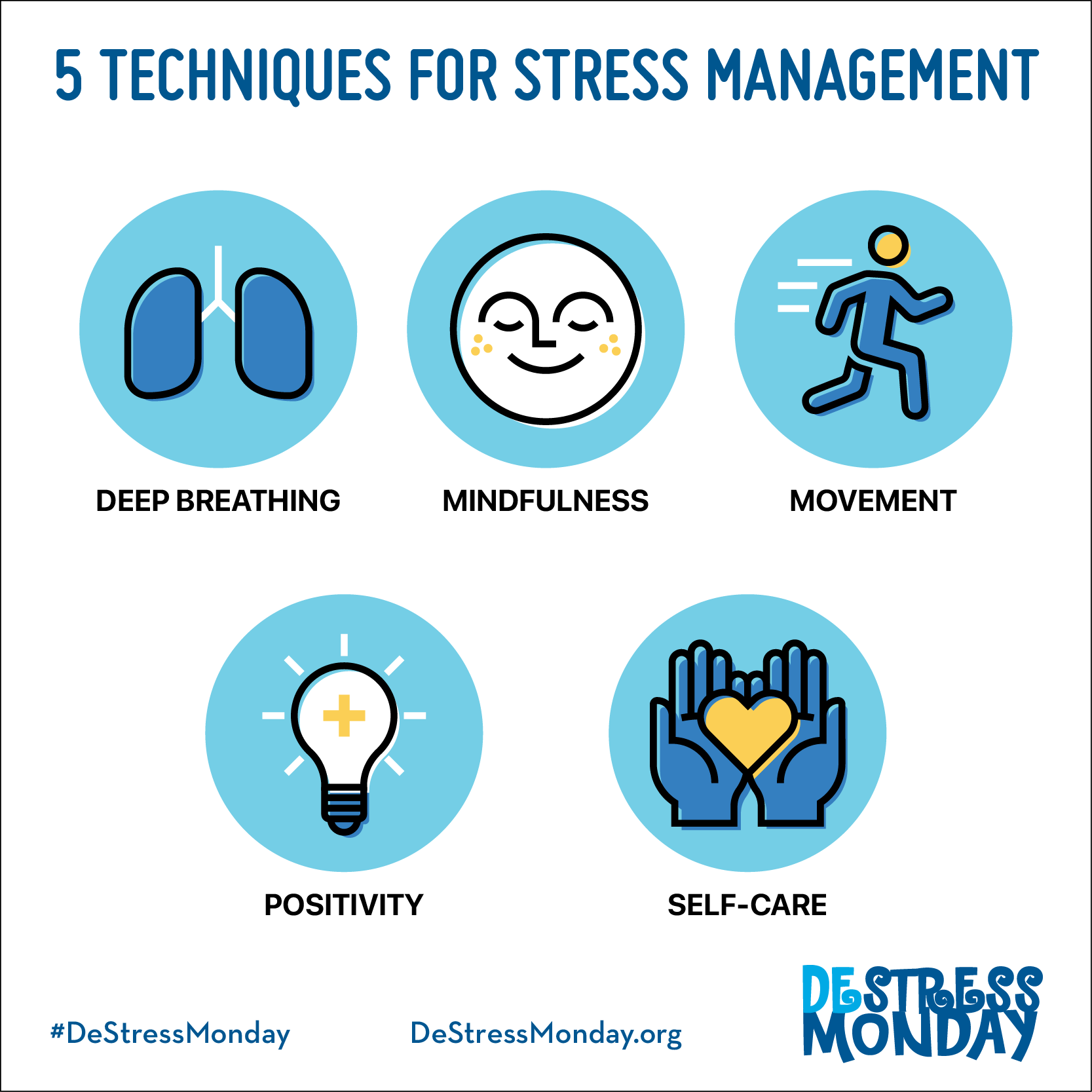The 5 Most Important Techniques for Stress Management
Stress is a natural element of the human experience, but it doesn’t have to overwhelm your day-to-day life. Stress management techniques are designed to mitigate feelings of anxiety and tension, and help you deal with these emotions in a healthy, productive way.
Nearly every culture around the world has developed their own unique forms of stress management, but with so many different methods and approaches available, how do you know which one is right for you?
Regardless of specific technique, at the core of many stress management practices is the idea of converting negative feelings into springs of inspiration, positivity, and energy by redirecting or letting go of unpleasant thoughts and feelings. Easier said than done? Maybe. But by practicing the basic stress management techniques listed below, you’ll start to find yourself free of the confining influence of stress.
Use this Monday to commit to taking back control of your headspace with simple stress management practices.
Deep Breathing:
Breathing moves air into and out of the lungs to bring in oxygen and expel carbon dioxide from the body. While breathing is mostly an unconscious activity, an individual can consciously control his or her breath in a manner to help curb the effects of stress. Deep breathing techniques help the body’s nervous system sense a more relaxed state of being. Use our collection of breathing GIFs to shift focus away from unpleasant thoughts and toward the soothing rhythm of your breath.
Mindfulness:
Mindfulness means being present, using innate attention and awareness. It is defined as a mental state achieved by focusing one’s awareness on the present moment, while calmly acknowledging and accepting one’s feelings, thoughts, and bodily sensations, used as a therapeutic technique. Some mindfulness practices include body scan meditation, sitting meditation, Hatha yoga, and being present in the moment.
Movement:
Aerobic and endurance exercises can help the body deal with stress and, perhaps counterintuitively, help it relax. As a result, walking, jogging and other repetitive activities are sometimes called muscular meditation. But other forms of physical activity can also help relieve stress. Yoga and tai chi are two disciplines that incorporate breathing, movement, and mindfulness to bring you back to a positive mindset.
Positivity:
Positive actions can help turn anxiety and stress into kindness and optimism. Evidence suggests embracing positivity can help people feel better about daily life, improve health, and reinforce positive thoughts and emotions. Practices like expressing gratitude, giving, and mindful attention can help individuals relieve stress and move to a happier state of being.
Self-care:
Self-care is all about improving your physical and emotional state to better handle the stressors of everyday life. Feeling better about yourself can help reduce chronic stress, as well as make you more sympathetic to the struggles of others. As far as stress management goes, self-care is certainly the most fun. Pampering yourself is rejuvenating, so make sure to dedicate time to visiting with friends, taking vacation, going to the spa, or treating yourself to a special meal.
